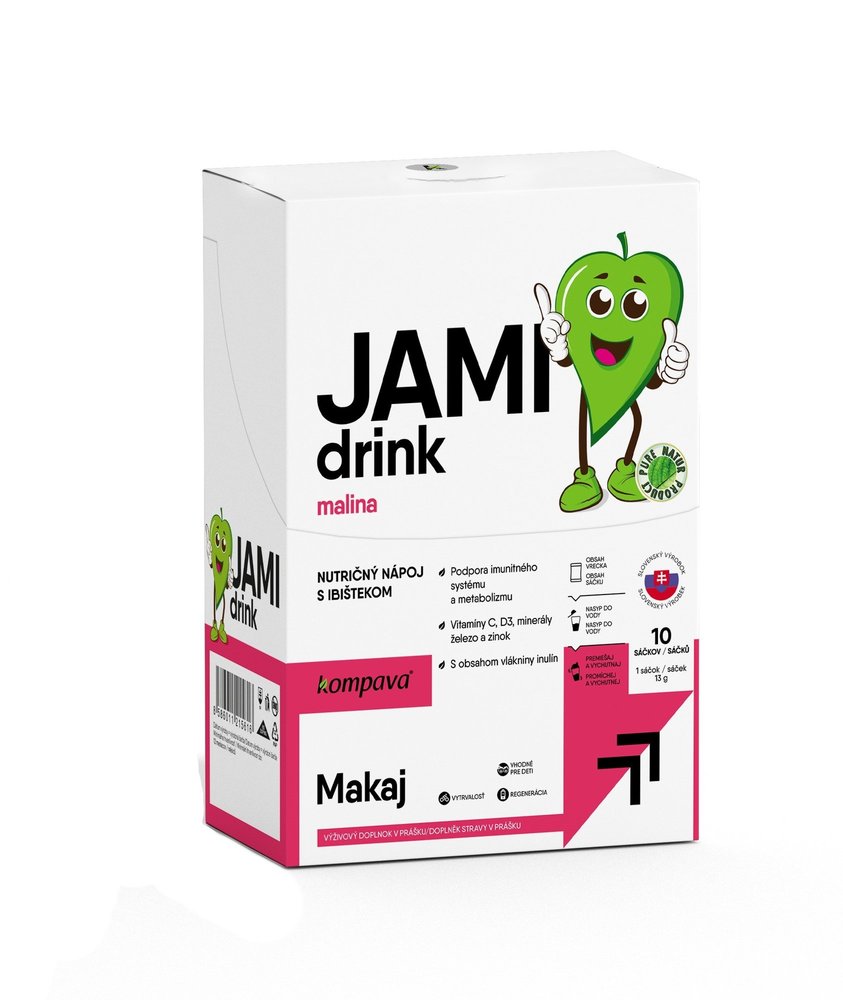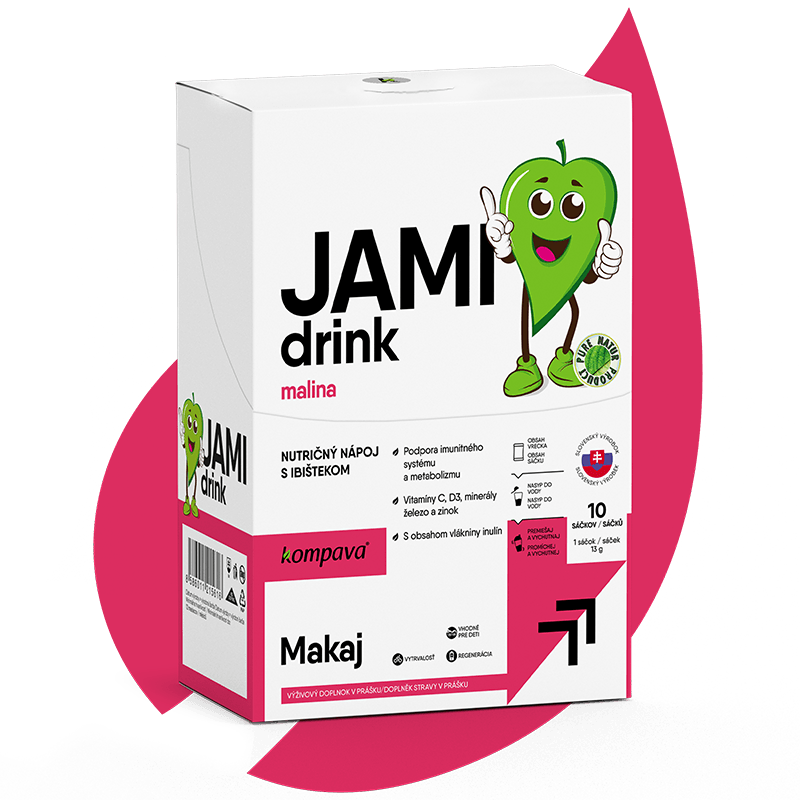JAMI drink
Nutritive drink for children from 5 years to support the drinking regime and healthy development, with hibiscus, vitamins D3 and C, iron and zinc. In natural powder form without artificial colors, with easy preparation in the form of a cold drink or tea.
Product reviews
Reviews of the product
22. June 2020
For a long time I was looking for a drink for children without unnecessary preservatives. I discovered a new Jami Drink. It tastes not only to the daughter, but also to the whole family - as a refreshing drink. It tastes really fruity and reminds me of homemade raspberry syrups, which we used to cook for my grandmother. :) I have only the best memories of him and this Jami drink brought me back to my childhood. And there are also vitamin C, fiber and hibiscus - so we no longer have to make hibiscus tea at home. :) Another TOP product from Kompava.






